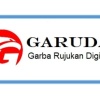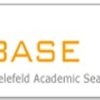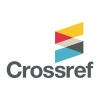Proses metakognisi siswa dalam menyelesaikan soal literasi numerasi domain geometri dan pengukuran
Abstract
Full Text:
PDFReferences
Abdussakir, A. (2012). Pembelajaran Geometri Sesuai Teori Van Hiele. JUrnal Madrasah, 2(1). https://doi.org/10.18860/jt.v2i1.1832
Chairani, Z. (2016). Metakognisi Siswa dalam Pemecahan Masalah Matematika. Penerbit Deepublish CV Budi Utama.
Kartika, L. D., Riyadi, & Sujadi, I. (2015). Proses metakognisi dalam pemecahan masalah matematika pada siswa kelas XI di SMA Banyumas. Jurnal Elektronik Pembelajaran Matematika, 3(9), 1021–1034.
Lai, Y., Zhu, X., Chen, Y., & Li, Y. (2015). Effects of mathematics anxiety and mathematical metacognition on word problem solving in children with and without mathematical learning difficulties. PLoS ONE, 10(6), 1–19. https://doi.org/10.1371/journal.pone.0130570
LeFevre, J. A., Polyzoi, E., Skwarchuk, S. L., Fast, L., & Sowinski, C. (2010). Do home numeracy and literacy practices of Greek and Canadian parents predict the numeracy skills of kindergarten children? International Journal of Early Years Education, 18(1), 55–70. https://doi.org/10.1080/09669761003693926
Miles, M. B., & Huberman, A. M. (1994). An Expanded Sourcebook: Qualitative Data Analysis. Sage Publications.
Nindiasari, H. (2011). Pengembangan bahan ajar dan instrumen untuk meningkatkan berpikir reflektif matematis berbasis pendekatan metakognitif pada siswa sekolah menengah atas (SMA). Prosiding Seminar Nasional Matematika Dan Pendidikan Matematika FMIFA Universitas Negeri Yogyakarta., 251–263. https://eprints.uny.ac.id/7378/
Nindiasari, H., ViviYandari, I., Khaerunnisa, E., & Pamungkas, A. S. (2018). The skill in designing explorative learning tools of mathematics pre-service teachers through explorative learning based on metacognitive scaffolding. SHS Web of Conferences, 42, 00105. https://doi.org/10.1051/shsconf/20184200105
Pangesti, F. T. P. (2018). Menumbuhkembangkan literasi numerasi pada pembelajaran matematika dengan soal hots. Indonesian Digital Journal of Mathematics and Education, 5(9), 566–575. http://idealmathedu.p4tkmatematika.org
Prihatnani, E., & Supriyadi, D. (2020). Proses metakognisi mahasiswa calon guru matematika dalam memecahkan masalah piramida hitung. Jurnal Riset Pendidikan Matematika, 7(2), 210–226. https://journal.uny.ac.id/index.php/jrpm/article/view/36732
Rosita, I., Syamsuri, Nindiasari, H., & Sukirwan. (2021). Analisis keterampilan metakognisi siswa SMP dengan gaya kognitif reflektif-impulsif dalam pemecahan masalah geometri. Symmetry: Pasundan Journal of Research in Mathematics Learning and Education, 6(2), 148–166. https://doi.org/http://dx.doi.org/10.23969/symmetry.v6i2.4705
Schraw, G., & Dennison, R. S. (1994). Assessing metacognitive awareness. In Contemporary Educational Psychology (Vol. 19, Issue 4, pp. 460–475). https://doi.org/10.1006/ceps.1994.1033
Setiawan, H., Dafik, & Lestari, N. D. S. (2014). Soal Matematika Dalam Pisa Kaitannya Dengan Literasi Matematika Dan Keterampilan Berfikir Tingkat Tinggi. Prosiding Seminar Nasional Matematika, November, 244–251.
Setyadi, D. (2018). Proses metakognisi mahasiswa dalam memecahkan masalah matematika (studi kasus pada mahasiswa pendidikan matematika UKSW). Kreano, Jurnal Matematika Kreatif-Inovatif, 9(1), 93–99. https://doi.org/http://dx.doi.org/10.15294/kreano.v9i1.13505
Shetty, D. G. (2014). A Study of the metacognition levels of student teachers on the basis of their learning styles. IOSR Journal of Research & Method in Education (IOSRJRME), 4(1), 43–51. https://doi.org/10.9790/7388-04154351
Stanton, J. D., Sebesta, A. J., & Dunlosky, J. (n.d.). Feature: Evidence-based teaching guide to student metacognition.Instructor checklist-student metacognition. https://lse.ascb.org/evidence-based-teaching-guides/student-metacognition/
Sugiyono. (2016). Metode Penelitian Kuantitatif, Kualitatif dan R&D. CV Alfabeta.
Sukirwan, Darhim, Herman, T., & Prahmana, R. C. I. (2018). The students’ mathematical argumentation in geometry. Journal of Physics: Conference Series, 943(1), 0–6. https://doi.org/10.1088/1742-6596/943/1/012026
Tampi, W., Subanji, & Sisworo. (2017). Proses metakognisi siswa dalam pemecahan masalah aljabar berdasarkan taksonomi SOLO. Jurnal Matematika, 7(1), 30. https://doi.org/10.24843/jmat.2017.v07.i01.p80
Thomas, G., Anderson, D., & Nashon, S. (2008). Development of an instrument designed to investigate elements of science students’ metacognition, self-efficacy and learning processes: The SEMLI-S. International Journal of Science Education, 30(13), 1701–1724. https://doi.org/10.1080/09500690701482493
Tim Erlangga. (2020). Fokus Asesmen Kompetensi Minimum (AKM) SMP/MTs. Penerbit Erlangga.
Warsito, Muhtadi, D., Sukirwan, & Saleh, H. (2020). The role of progressive mathematics in geometry learning. Journal of Physics: Conference Series, 1613(1). https://doi.org/10.1088/1742-6596/1613/1/012042
Wilson, J., & Clarke, D. (2004). Towards the modelling of mathematical metacognition. Mathematics Education Research Journal, 16(2), 25–48. https://doi.org/10.1007/BF03217394
DOI: http://dx.doi.org/10.48181/tirtamath.v4i1.16345
Refbacks
- There are currently no refbacks.
Copyright (c) 2022 TIRTAMATH: Jurnal Penelitian dan Pengajaran Matematika
Ciptaan disebarluaskan di bawah Lisensi Creative Commons Atribusi 4.0 Internasional .
Tirtamath: Jurnal Penelitian dan Pengajaran Matematika. Jurnal ini diterbitkan oleh Program Studi Magister Pendidikan Matematika Universitas Sultan Ageng Tirtayasa (cetak) dan Jurnal Untirta (eprint).
Alamat Penerbit: Program Studi Magister Pendidikan Matematika Kampus FKIP Untirta Jl. Ciwaru Raya, Cipare, Kec. Serang, Kota Serang, Banten 42117, Email: [email protected] |Klik untuk mengakses: Tirtamath: Jurnal Penelitian dan Pengajaran Matematika






